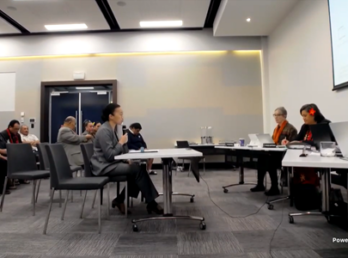Cancelling Commercial Leases for Breaches articles
Date
29 Sep 2020
Related Expertise
Property Law Act 2007 – Canceling Commercial Leases for Breaches of Covenants
We have recently seen an increase in the number of commercial landlords asking us for assistance with tenants who are refusing or unable to pay rent. If negotiations between a landlord and tenant of a commercial property have fallen through there is a process available under the Property Law Act 2007 (‘PLA’) for cancelling the lease and seeking repayment of rental arrears and costs. However, there are a few pitfalls to be aware of along the way.
The process for cancelling a Lease
If a tenant fails to pay rent, before a landlord can exercise a right to cancel a lease, the landlord must serve the tenant with a notice of intention to cancel the lease (‘PLA notice’). The PLA notice needs to give the tenant 30 working days to remedy the breach (i.e. to pay the rental arrears). This period used to be 10 working days but as a result of temporary COVID-19 changes to the PLA, it has increased to 30 working days.
There are strict statutory requirements for the contents of the PLA notice as well as its service. If the statutory requirements are not correctly followed, there can be drastic consequences for the landlord. If the tenant is not correctly served they could apply to the Court for relief and the landlord may have to commence the process again. If the form is incorrect the Court could make an order re-instating the lease and awarding costs to the tenant. For this reason, the landlord should seek legal advice to ensure the notice is drafted and served correctly.
Once the PLA notice has been served, the landlord will have three options:
1.negotiate and agree cancellation of the lease with the tenant (from a position of power);
2.cancel the lease by peaceably re-entering the premises (after 30 working days); or
3.cancel the lease by applying to the High Court for an order for possession and rental arrears (after 30 working days).
Negotiate
Often the PLA notice will trigger a tenant to negotiate with the landlord and perhaps offer to pay the rent arrears (either in whole or in instalments). In some situations, the relationship can be restored once the tenant has had an opportunity to sort their financial affairs and pay the rent arrears.
We recently achieved a successful settlement of a dispute for a landlord following service of a PLA notice. In that case the tenant offered to pay the rent arrears demanded as well as the landlord’s legal costs and both parties agreed to terminate the lease.
Peaceably re-enter the premises
If the tenant has not paid the rent arrears within the 30 working days required under the PLA notice, one option for the landlord is to peaceably re-enter the premises. While cheaper than applying to the High Court for a possession order, this option does carry some risk. The landlord needs to be careful not to commit the crime of forceable entry and must enter during daylight hours. They must also be aware that the tenant might apply to the High Court for relief (the tenant has 3 months from the date of re-entry to make such a claim).
It is also important that the landlord formally terminates the lease and takes possession (i.e. preventing the tenant from accessing the property). This is because the lease may be deemed not to have been cancelled if there is no physical act of taking possession and re entering. We can assist landlords with documentation to assist them or their agents taking possession. These can be helpful if the Police were to be called.
We recently assisted a landlord to take possession of their premises on the expiry of a PLA notice. The client did not want to spend the time and money required applying for High Court orders. We engaged specialist agents for the landlord to change the locks and take possession. The agents also served the tenants with our notices and a letter of demand for the rent arrears when the tenant arrived.
If this process is not executed properly the landlord runs the risk of both a civil claim by the tenant (e.g. for breach of the lease or trespass) and possibly even a criminal complaint against them. Given this risk we strongly recommend the landlord first obtains legal advice. Getting the process right will reduce the likelihood of a tenant’s application to the Court for relief succeeding.
Apply to the High Court for a Possession Order
Once the PLA notice has expired, if the rent arrears have not been paid, the landlord can apply to the High Court for an order for possession of the property. This is the safest option and will provide the landlord with certainty that the lease has been cancelled and they can re take possession. Once the order is made by the Court, the tenant cannot apply to the Court for relief against cancellation.
This option also allows the landlord to seek an order for the payment of the rent arrears and costs under section 251 of the PLA. This saves the landlord from filing separate debt recovery proceedings which may still be required if the peaceable re-entry option is taken.
The author has previously appeared in the High Court in Violich v Byco Limited [2016] NZHC 927 acting for a landlord in a successful application for possession of a premises under the PLA. Orders were also obtained for rent arrears, outgoings, interest and costs.
Conclusion
At Stace Hammond we have a team of property and disputes specialists who can help you with all your property matters. If you are a landlord that needs assistance cancelling a lease or a tenant that needs help responding to a PLA notice, dealing with a re-entry, or negotiating arrears or other aspects of the lease, please contact Paul Connolly, Giles Brant or Phil Morris.
The above overview has been provided for general information purposes only. It is not, nor is it intended to be treated as, legal advice and is subject to change without notice.
Subscribe
Get insights sent direct to your email.






















